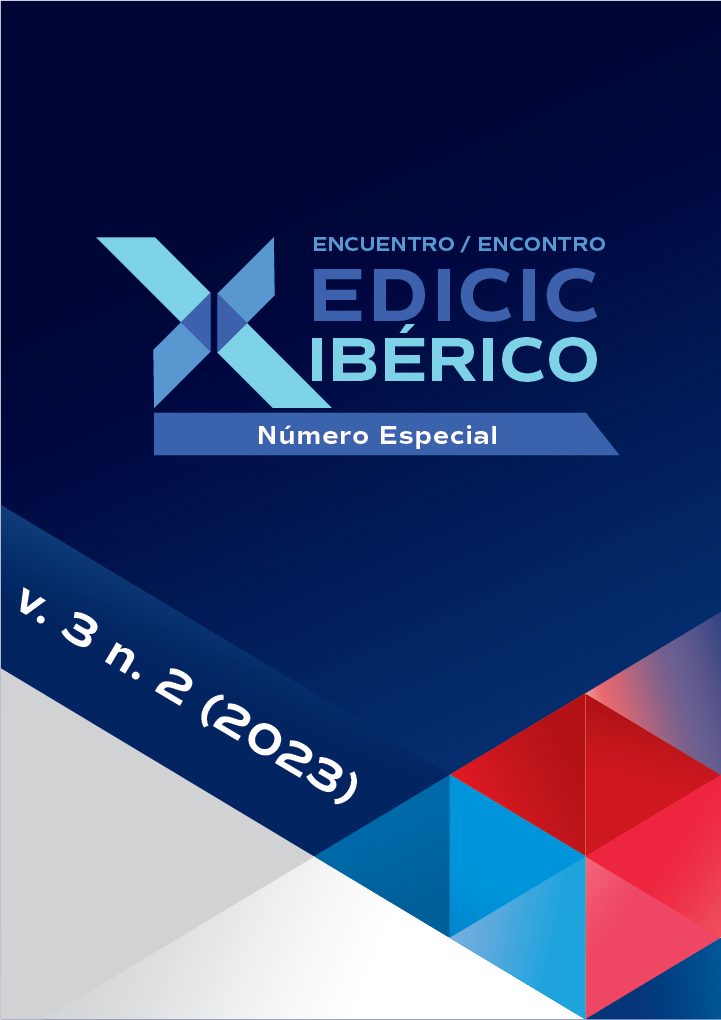Comunicación, información y repertorio de acción de los movimientos sociales en Brasil y Alemania
DOI:
https://doi.org/10.62758/re.v3i2.259Palabras clave:
Información, Comunicación, Movimientos Sociales, Brasil, AlemaniaResumen
La información y la comunicación son elementos clave que capacitan a los individuos para involucrarse activamente en la vida política y social. A través de las redes de comunicación e información establecidas por los movimientos sociales, las personas tienen acceso a conocimientos, datos, argumentos y perspectivas que pueden influir en sus opiniones, compromiso y acciones. Considerando la importancia de la información y la comunicación para la democracia y la participación ciudadana, este texto aborda los repertorios de acción de los movimientos sociales y su relación con la ciudadanía y los sistemas de medios de comunicación, especialmente Internet, reflejando sus prácticas políticas, sociales y culturales. En su recorrido teórico, el texto presenta un enfoque conceptual y relacional sobre la información, la comunicación y la participación ciudadana, que comprende una cierta dimensión performativa de los movimientos sociales, que se materializa en la movilización, la organización y la articulación de estos movimientos en torno a sus objetivos políticos y sociales. En los resultados parciales, se abordan ejemplos de Brasil y Alemania en este contexto. El estudio se desarrolló siguiendo los procedimientos metodológicos prescritos en la Revisión Sistemática de la Literatura. Se consultaron bases de datos nacionales e internacionales proporcionadas por la Universidad Técnica de Dortmund en Alemania, como Scopus, Web of Science y SciELO, por ejemplo. También se consultaron el Portal de Tesis y Disertaciones de Capes y las bibliotecas de Unesp, USP y Unicamp, todas ellas brasileñas. Las búsquedas se centraron en temas estratégicamente seleccionados en las áreas de Comunicación, Sociología y Ciencia de la Información y priorizaron publicaciones a partir de la década de 2000, con énfasis a partir de la década de 2010, sin menospreciar obras clásicas de períodos anteriores. Al final, se seleccionaron 67 referencias y se sistematizó su contenido: se extrajeron y registraron de manera sistemática las informaciones relevantes de cada estudio, como métodos y resultados. Los movimientos sociales agregan una variedad de perspectivas y voces a la discusión pública. Representan intereses y grupos frecuentemente excluidos o marginados, asegurando que la democracia sea inclusiva y que se consideren una amplia gama de preocupaciones en la formulación de políticas. Pueden fomentar la participación ciudadana activa, involucrando a los ciudadanos en actividades como protestas, peticiones y compromiso político. Esto fortalece la democracia, ya que los ciudadanos se sienten más conectados e involucrados en el proceso político. La reflexión sobre la información, la comunicación y los movimientos sociales presentada en este estudio sugiere que los movimientos sociales son actores políticos activos en la esfera pública que, aunque no dialoguen con todos los sectores de la sociedad o con el poder político, son portadores legítimos de las demandas específicas de grupos sociales y operan a favor de la democracia a través de prácticas ciudadanas. Las redes de comunicación e información que establecen son fundamentales para fundar la esfera pública alternativa y construir las bases del propio movimiento, lo que nos lleva a comprender que la relación entre movimientos sociales, información y comunicación es íntima e intensa.
Citas
Alonso, A. (2009). As teorias dos movimentos sociais: um balanço do debate. Lua Nova, 76 (1), 49-86. DOI: https://doi.org/10.1590/S0102-64452009000100003
Braga, J. L. (2012). Circuitos versus campos sociais. In. M. A. Mattos, J. Janotti Junior, N. Jacks, (orgs.) Mediação & Midiatização. Edufba. 31-54.
Bringel, B. (2012). Com, contra e para além de Charles Tilly: mudanças teóricas no estudo das ações coletivas e dos movimentos sociais. Sociologia & Antropologia, 2 (3), 43-67. DOI: https://doi.org/10.1590/2238-38752012v233
Castells, M. (2013). Redes de indignação e esperança: movimentos sociais na era da internet. Zahar.
Darbishire, H. (2010). Proactive transparency: the future of the right to information? World Bank Institute. DOI: https://doi.org/10.1596/25031
Fengler, S., Eberwein, T., & Karmasin, M. (2022). The global handbook of media accountability. Routledge. DOI: https://doi.org/10.4324/9780429326943
Galvão, M. C. B., & Ricarte, I. L. M. (2019). Revisão sistemática da literatura: conceituação, produção e publicação. Logeion: Filosofia da Informação, 6 (1), 57-73. DOI: https://doi.org/10.21728/logeion.2019v6n1.p57-73
Gohn, M. da G. (2008). O protagonismo da sociedade civil – movimentos sociais, ONGs e redes solidárias. Cortez.
Luvizotto, C. K. (2022). Comunicação Digital e Cidadania: A Atuação de Movimentos Sociais e Contramovimentos Durante a Pandemia de Covid-19. Revista Comunicação Midiática (Online), 17, 61-72. https://www2.faac.unesp.br/comunicacaomidiatica/index.php/CM/article/view/542.
Luvizotto, C. K., & Sena, K. E. R. (2022). Cidadania Digital e tecnologia em rede: entre comunicação, algoritmos e aplicativos cívicos. Liinc em Revista, 18 (2), e6070, 01-18. https://revista.ibict.br/liinc/article/view/6070/5707. DOI: https://doi.org/10.18617/liinc.v18i2.6070
Luvizotto, C. K, Napolitano, C. J. & Trindade, A. C. (2020). A informação sobre a Democratização da Comunicação no blog do Intervozes na Revista da Carta Capital. Revista Latinoamericana de Ciencias de La Comunicación. 19 (1), 38-48. http://revista.pubalaic.org/index.php/alaic/article/view/637/641. DOI: https://doi.org/10.55738/alaic.v19i34.637
Melucci, A. (1989). Um objetivo para os movimentos sociais? Lua Nova, São Paulo, 17 jun., 49-66. DOI: https://doi.org/10.1590/S0102-64451989000200004
Mounk, Y. (2019). O povo contra a democracia: por que nossa liberdade corre perigo e como salvá-la. Companhia das Letras.
Pinto, M. V., Aquino, E. L. de C., Rondon, T. Moraes Junior, C. A. de & Kogan, A. (2018). Desinformação em eleições: desequilíbrios acelerados pelas tecnologias. IT&E – Instituto Tecnologia e Equidade.
Recuero, R. (2012). Redes sociais na internet. Sulina.
Silva, M. K. & Pereira, M. M. (2020). Movimentos e contramovimentos sociais: o caráter relacional da conflitualidade social. Revista Brasileira de Sociologia, 8 (20), 26-49. DOI: https://doi.org/10.20336/rbs.647
Tarrow, S. (2011). Power in movement: social movements and contentious politics. Cambrige University Press. DOI: https://doi.org/10.1017/CBO9780511973529
Tilly, C. (1995). Contentious repertoires in Great Britain. In. T. Mark, T. (Org.). Repertoires and cycles of collective action. Duke University Press.
Trindade, A. C. (2020). O potencial das fanpages dos movimentos sociais em prol da democratização da comunicação: Um estudo sobre a comunicação online do Intervozes e Fórum Nacional pela Democratização da Comunicação. [Mestrado em Comunicação. Unesp – Universidade Estadual Paulista].
Volpato, A. N. (2022). Estratégias de visibilidade de movimentos sociais da juventude na sociedade midiatizada. [Doutorado em Comunicação. Unesp – Universidade Estadual Paulista].
Volpato, A. N., Luvizotto, C. K. & Versuti, C. D. (2019). Visibilidade Como Estratégia, Estratégias de Visibilidade: Movimentos sociais contemporâneos na internet. Revista ECO-Pós. 22 (1), 352-383. https://revistaecopos.eco.ufrj.br/eco_pos/article/view/15992/pdf. DOI: https://doi.org/10.29146/eco-pos.v22i1.15992
Zanetti, L. A., Luvizotto, C. K., Nascimento, F. A., & Trindade, A. C. (2023). Mediatized Public Sphere and Journalism in Times of Algorithms, Polarization and Crisis of Democracy in Brazil. Social Sciences. 12 (4), 143-151. http://www.socialsciencesjournal.org/article/202/10.11648.j.ss.20231204.11.
Descargas
Publicado
Cómo citar
Número
Sección
Licencia
Derechos de autor 2023 Revista EDICIC

Esta obra está bajo una licencia internacional Creative Commons Atribución 4.0.
La Asociación posee los derechos de autor de los textos que publica y adopta la licencia Creative Commons, CC BY 4.0 DEED Atribución 4.0 Internacional (https://creativecommons.org/
Usted es libre de:
- Compartir: copiar y redistribuir el material en cualquier medio o formato para cualquier propósito, incluso comercialmente.
- Adaptar: remezclar, transformar y construir a partir del material para cualquier propósito, incluso comercialmente.






